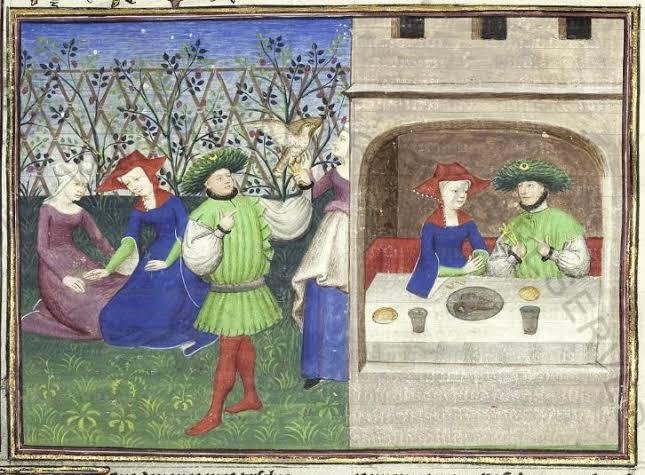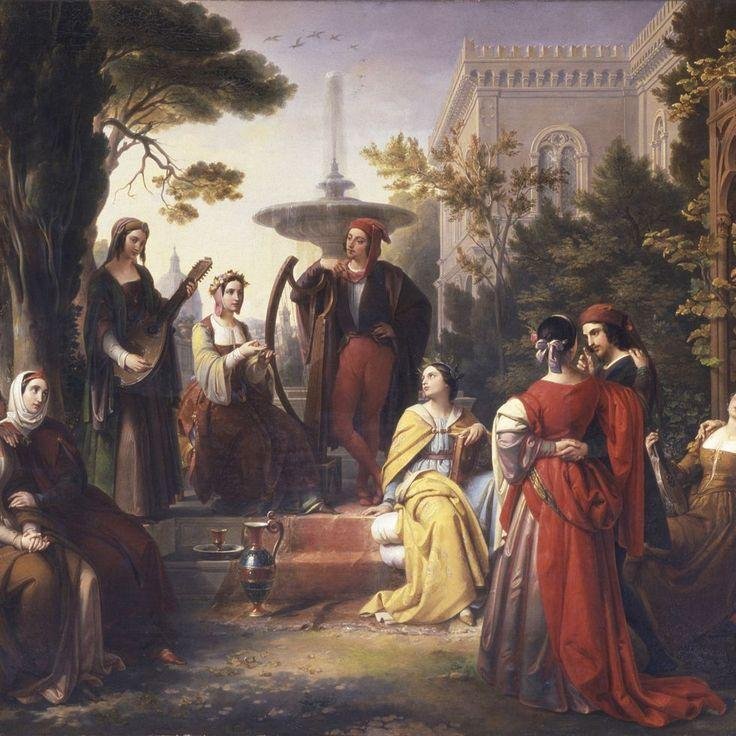“A Good Woman in Disguise: The Surprising Greatness of Griselda in Boccaccio’s Tale of Griselda”

INTRODUCTION
On the tenth day, Dioneo closes Boccaccio’s Decameron by recounting a moving and thought-provoking story about a virtuous woman and her patience: that of Patient Griselda. For ages, people have respected and questioned this narrative which tests how much patience people have, how they use power and the rules women lived by in medieval Europe. The main character in the story, Griselda, submissiveness and loyalty allowed her to rise in both standing and character. I examine how the author uses this tale to challenge traditional notions of virtue and authority, providing an unclear and challenging reflection of the way women and men were expected to behave in the 14th century.
Marriage is being forced upon the Marquis of Saluzzo, Gualtieri, by those around him. He picks Griselda, who is a poor but good girl, surprising all of his followers. After they marry, he starts testing her loyalty by taking away and killing their children, divorcing her and then acting out another wedding—only to admit it was a trick. Griselda endures every test calmly and humbly, without ever objecting. Afterward, Gualtieri carries her back to the house and reinstates her, congratulating her for her patience.
ANALYSIS
Griselda’s personality forms the principal puzzle in the story. On the one hand, she’s shown as a devoted, Christian obedient wife; on the other, her total agreement makes today’s readers feel uneasy. Boccaccio does not state if Griselda’s patience is a good thing or a bad thing, so the audience is left to decide for themselves. By means of Griselda, Boccaccio discusses the tough rules women had to live by and uses irony to reveal the disharmony in marriage.
A large part of the tale relies on irony, particularly in the way readers are led to believe that Gualtieri’s tortures could be admired. Even though his actions are oppressive, nowhere in the work is he directly blamed. This makes readers able to make their own opinions rather than just getting the author’s conclusion. Rather than preaching, Boccaccio shows readers how some societal ideas allow Gualtieri’s behavior to go unpunished.
A major aspect of literary study is symbolism. What Griselda wears mirrors her experience: she exchanges her peasant dress for refined clothes while marrying Gualtieri, reverts to her peasant outfit after the divorce and finally sees her previous plain clothing restored. Her roles as a woman—public and private—make it clear that she does not decide her own identity: she is constantly virtuous, but her worth changes according to society’s views.
The story responds to 14th-century fears by looking at social class, differences between men and women and loyalty. Whereas others became nobles from birth, Griselda did so not through status or money, but thanks to her goodness. Still, the off-putting tests in the story show why it is better to stick with the status quo. Readers today relate to it by thinking about tests of strength and how different people use authority in their relationships. It asks important questions regarding how love, loyalty and virtue are expressed fairly in a just society.
PERSONAL RESPONSE
Both the fascination and discomfort described in the tale were strong for me. The power in Griselda comes from her firm determination, though the harsh treatment she receives is almost too much for anyone to feel sympathy for her. I respected how patient she was, but I wasn’t sure whether that should be seen as something to admire or something to pity. Because of Boccaccio’s unclear tone, readers continued to wonder how far decisions should go in the name of loyalty and love.
CONCLUSION
The story of Patient Griselda lasts because it provides a reminder of challenging issues related to power, gender and right and wrong. Griselda’s journey pushes us to reconsider the idea of virtue and if faithful compliance is genuinely virtuous. Since the fight for equality and independence continues, this writing often reflects the difficulties people face when meeting others’ expectations.







